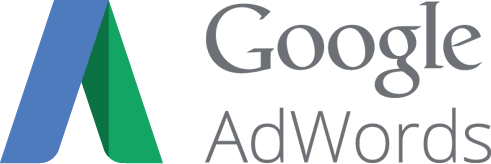Brad Post, Create the Movement
Zac Lindsey, Attorney, Lindsey Firm
Brad Post, Create the Movement: Welcome back to this addition of our podcast. This is Brad Post and I am sitting with a friend, also one of our attorneys, Zac Lindsey. Zac, how are you doing today?
Zac Lindsey, Attorney: Doing fine, Brad. Thanks for having me.
BP: Good. Zac’s with the Lindsey Firm out of Tulsa. We’ve been friends, or acquaintances, for several years now.
ZL: Yeah.
BP: And you’ve been doing a lot of neat things in Tulsa with, you know, what you’re doing with, you’ve got your own podcast called Fore Founders. F-O-R-E, right?
ZL: Right, F-O-R-E. It’s a made up word.
BP: Okay.
ZL: I made it up. It’s F-O-R-E F-O-U-N-D-E-R-S.
BP: Okay.
ZL: So, Fore Founders. It’s hosted through my law firm website.
BP: Right.
ZL: So, it’s just straight lindseyfirm.net/podcast. That’s where you can find that.
BP: Can you tell me a little bit about the vision of that?
ZL: Sure. The idea kind of came about when I was being an irresponsible business owner and not blogging, and not really promoting myself, or doing anything. And I was chatting with your friend, and she kind of brought up this point that I liked to have conversations. I like to ask people hard questions. And, you know, attend these entrepreneur events. And she said, “Why don’t you do a podcast?” And I thought, that’s kind of interesting. And I had not thought about that before. I’d actually done a podcast before through a friend of mine – a comedy podcast.
BP: Okay.
ZL: That was not successful [laughter] because we were not very funny. But he had a great laugh, so I thought that could kind of carry it. So, I kind of looked into it, and I thought it would be really neat since I represent small businesses. I represent startups. It would be cool to have, kind of, a local vision, a local spotlight. And allow local companies: give them an opportunity, give them a platform to tell people what they do.
I’ve always thought, I’m constantly curious about why people decide to get into business. You know? A lot of people will be in a job for a while and then they leave to start a business. And that’s a big leap. To get out of a secure paying job. You have a paycheck every two weeks, or every month. To go start a business where there’s no guarantee of success.
BP: Right.
ZL: And I have some ideas about why I think people do that. But I’m really curious to figure out what motivates people to make that leap. And so, that’s kind of the basis of it. I sit down with the business owner. We get their story. Understand where they’re coming from. Why they made the decisions they did. A lot of times we find interesting things about their background – maybe how they were raised. Or, where they’re from. And the situations that led them to start their own business.
BP: Awesome. We’ll speaking of background and how they were raised, can you tell us a little bit about your story? And you can back as far as you want.
ZL: Sure. Well, I’m from here. I’m from Oklahoma. I’m from a small town. And I grew up a rather normal life, you know? Two parents that worked. I have a sister. And then went to college at Arkansas. And then went to law school at Michigan. So, I thought I would never be in Oklahoma.
BP: Oh, really? You moved to Michigan.
ZL: Oh, yeah. I was never, never thought I would come back. But, along the way I found out that I liked to do some things, like some litigation work. I liked representing clients directly. And there’s a lot of opportunity for that here, with some connections that I had here. So, I ended up back in Oklahoma.
BP: Okay.
ZL: And I worked for the DA’s Office for a while. And then I worked for a couple of law firms that did mostly insurance-defense work. Which is, you know, if you’re a physician you buy a medical malpractice policy. And then if you happen to get sued you report to the insurance company, who then hires a law firm to represent the doctor.
BP: Right, okay.
ZL: We did that. Then also municipal work. So, small towns will buy a policy, and kind of go through the same process. So, if they get sued for anything, from maybe police issues, employment issues, even land disputes. It’s really a wide range that the firm handled for that stuff. And, so, I worked them for a while. And then, through that process I started really finding the kinds of clients that I enjoyed representing. Which are small business owners. And I really wanted to pursue that. And so, in 2012 I went out on my own and started my practice.
BP: All right. Was that a big step of faith?
ZL: Huge. Yeah. Because for one it was, I was in a good firm. It was a good job. And then my wife was also pregnant.
BP: Oh really, okay. Assuming you had a salary, or whatnot?
ZL: Right, yeah, your regular paycheck, insurance, the whole thing. You know? And she was working at a firm at the time as well. She’s also a lawyer. And things were getting stressful. And so, I thought, “Okay, this is a great opportunity.” Well then, I decided to start a business, start my practice. And she’s starting her family.
BP: Right.
ZL: So, while she was growing a baby, I was growing a business.
BP: Yup, yeah.
ZL: So, it was scary at first. But, and the fear doesn’t leave, really. I don’t think, but it does even out if you keep at it. And it’s been the best decision.
BP: Good. Good. Another thing I wanted to talk about, too. You’re doing another company.
ZL: Right.
BP: Called Firm Forms, correct?
ZL: Right. Firmforms.com.
BP: And I think it’s a really neat idea. Tell us a little bit about that.
ZL: Sure. So, you’ve probably heard of Legal Zoom? I don’t know if you have. They’re all over the radio and everywhere else making millions of dollars a year. In essences, what Legal Zoom allows people to accomplish is self-service legal forms. As they will say, they’re not a lawyer, but their forms are drafted by lawyers. And so, you go and fill out information you get documents back.
Well, I had, it was last summer. So, we’re now in July of 2016. So, it was actually a year ago in July of ’15. People were calling me saying, “I would like to start a company. I want to start an LLC.” And I would quote them a price, and they would respond with, “That’s a lot more than Legal Zoom. That’s a lot more expensive.”
BP: I know, really. Yeah.
ZL: And I would try to explain that, well, some differences are that I’m personally responsible for my work. You can actually come and talk to me if you have questions. I’m a real lawyer. I have a license.
BP: Right.
ZL: And, no matter how much I tried to explain the value I could provide as a professional, their perspective was simply cost. It was, “Okay, that’s all great, but I just need this little small thing here that will get me past the hump of being able to register with the Secretary of State’s Office, get a tax id number, and a bank account.” That’s all they really wanted to do. So, I thought, “The only way Legal Zoom can make the money they make, and do the volume they do, is if it’s automated in some way.” There’s no way that an individual, or a lawyer, is sitting there reviewing, or even in filling out these documents. It’s not happening. So, I was curious if there was a way that I could build something for my firm. Is there a way that I could kind of automate that process as well? So, that’s what I did. On my website you can actually go the LLC page, and you can choose a package that fits your needs. And go through the process of filling out a form. And that’s kind of the prototype for Firm Forms.
In essence, what we allow attorneys, now our product is directed to attorneys, we will take the attorney’s drafted Word document. So, this is their document that they created. It’s not a form bank. We’re not forcing you to use somebody else’s documents that you’ve never seen. They’re actually your documents. We take those documents, and using those documents we create a web form that you can deliver to your client.
So, the roundtrip for the client looks like this. They go to your website. They fill out the form online. And they submit. Maybe you take payment, maybe you don’t. That’s up to you. But when they hit submit we take the information from that form and automatically draft out the pleading, or the document, that’s associated with that and deliver it to the lawyer.
So, the lawyer gets an email with a fully-drafted document. Whatever they’ve chosen it to be. Without having to do anything. So, then the attorney can read over it and make sure everything is right before delivering it to the client.
So, that’s the basic idea. We enable attorneys to have a mini-version of Legal Zoom within their practice.
BP: So, it cuts down a lot of their time from having to fill out the forms? All they have to, is rather than say three hours, it’s an hour for them to review?
ZL: And this works really real as you can imagine for flat-fee services. So, if you are accustomed to doing an estate plan. So, you’ll have wills. You’ll have the trust. You’ll have guardianship papers, power of attorney, health care, advance directives for health care. Things like that. So, it might be a suite of say 10 documents.
BP: Okay.
ZL: Most of estate planning attorneys will charge a flat fee for that. They’ll say $2000 for this whole plan. If we can use Firm Forms to automatically draft all of those for you; your total time, and I can tell you now from one of our clients. We took their 13 documents that they do for an estate plan for married people with kids, and it can be completed in less than four minutes.
BP: Wow.
ZL: So, if they charge $2000 for that, they’ve spent maybe a total of an hour by time they review all of it, compare their notes, and also meet with client to explain everything. They’re making $2000 an hour on that.
BP: Right.
ZL: So, it’s a pretty big increase for most attorneys who have a flat-fee model.
BP: It’s a lot less pain and headache for having to fill out
ZL: Right.
BP: Because a lot of the forms are just copy and pasting, right?
ZL: Exactly. Otherwise, you’re paying somebody to do it. You’re doing it yourself. This way, as we like to say, this is your paralegal who never gets sick, never goes on break, never sues you for employment issues.
BP: Right.
ZL: This is just software that you can use to make it happen. It’s all web-based and responsive. It’s all in the cloud. So, you don’t have to have a specific kind of computer to run it.
BP: Okay. Good. Well, one question I have is, you know, what’s one thing that’s really exciting for you in your business right now.
ZL: Well, it’s kind of the thing that’s always exciting, and that is seeing people figure out what they believe their meant to do and killing it.
BP: Okay.
ZL: I love that. That’s the thing that really gives me the most excitement is when I see somebody create something, usually it’s a business, they create a product, they create a service, they build this business, and they just destroy it – in a good way. They’re really doing a good job because they’ve found the thing that really motivates them and gives them passion. And it really, it enriches their lives. And then usually will enrich other people’s lives. Whether that’s through employment, through direct contribution to society, whatever that is.
So, I really enjoy helping people do whatever they can’t do – which is the legal side, usually in my instance. Helping them accomplish that thing they’ve set out to do.
BP: Good. Good. When you went from insurance defense into your own thing was there anything holding you back? I mean, was there a big risk?
ZL: Yeah, but there’s a lot actually. In addition, the financial risk, there’s, I think, for me when I started my business I actually started it for other attorneys. I didn’t realize that. But if I look back now, I’m almost, it’s July of ’16 so we’re coming up on four years. If I looked back now I see that I did was actually built around impressing other lawyers. It wasn’t for the client directly.
BP: Okay.
ZL: That’s how I started out. And that’s how, I think, a lot of the traditional law firm, ‘How to Start a Law Firm’-type books would tell you is your best referrals come from other lawyers. And you need to build a business where other lawyers feel comfortable referring work to you.
BP: Okay.
ZL: I agree that the best referrals do come from other lawyer, and current clients. But, the best work that comes off the street comes from people who are looking for exactly what you serve.
BP: Okay.
ZL: Right? So, if somebody is looking for a lawyer who does LLCs, or looking for a startup attorney, that’s what they’re going to search. That’s what they’re going to hope to get when they hope to get when they come to your website, or engage with you, is that they hope to get an understanding that you are there for them.
BP: Right.
ZL: You’re going to provide the service that they’re looking for, and it’s going to work. Whether that works from a price prospective, or expertise, or whatever. There’s no attorney who is going to come there and get that impression, then send you work. They’re going to know you through other ways.
BP: Right.
ZL: So, that was one of the biggest things for me to kind of understand. I need to make sure that the client come first period. Even from a marketing and referral perspective. And not build things around what other attorneys are going to think of me.
BP: Right. Right. That’s good. That’s good. This might be a two-part question, but what is the best business advice you’ve ever received, or maybe ever given? If you’ve given, then you’re like, “Man, I just impressed myself with that.”
ZL: Yeah. I don’t know about that.
BP: Okay.
ZL: But my father-in-law gave me some really good advice when I was starting out. He is a retired marketing director for a bank. And he’s been in ad agencies and done marketing, copywriting. And we were kind of talking about some marketing ideas. And he said, “You should find the people that are doing things you’re interested in, and go and interact with them. You know? Keep you excited about what you’re doing.” And I think we’re talking about in terms of marketing, but really that’s I structured my practice across the board. I have a lot of different interests. I’m a curious guy. There are a lot of things that I enjoy doing. But I know that I’m one person. I can’t possibly start a 100 different businesses. Unless, I’m just one very small part of starting those 100 different businesses.
BP: Okay.
ZL: So, the best advice he gave me was find people who you can serve that are doing things that you want to do.
BP: That’s good.
ZL: And that will keep you invigorated and make you excited to serve them. So, it makes me feel like I’m on the team. I’m contributing this one piece to their overall vision, but they’re doing something that I find interesting and innovated and that makes me excited to work for them as a lawyer.
BP: That’s good. That’s good.
ZL: For service advisors I think that’s great. I mean, that’s really good advice for people who are service providers.
BP: Yeah. I think you’ve done a really good job at just getting out and networking. Right?
ZL: Yeah.
BP: With, you know, the different things that are going on within Tulsa.
ZL: Yeah. I think being present. I’m not really good at networking in terms of, like you’re excellent at introducing people and making sure people connect.
BP: Thank you.
ZL: And I appreciate that. I’m not so great at that naturally. I have to think about it, and be reminded, “Oh, shoot! I should have done that.” That’s usually what happens for me. But, I think that just being present and being honest has gotten me a long way. And not trying sell services, not always trying to assert my knowledge, or act like I know everything. But simply listen and just be there. But be there consistently and be available, I think has been good for my business.
BP: One thing you do really well, like you said, is listen, but you ask good questions, too, that provoke thought. You know? Almost challenges people sometimes, right>
ZL: Right. Yeah. I think that’s true. I think that you can tell a lot about somebody’s understanding of what you’re talking about if they ask questions. Like, by the questions they ask. Right?
BP: Okay.
ZL: If they’re asking the kinds of questions that either you’ve thought of, or you’re trying to answer yourself, then that tells you, “Man, this person’s really listening to what I’m saying. They’re intelligent. They’re thinking on my level. They’re trying to help me work through this problem as well. They’re not simply just asking the obvious question, or the one that shows they weren’t listening in the first place.”
BP: Right. Good. Well, what, I’m always curious about, like, books, what people are reading, that type of stuff. And I’m assuming you’re a reader. What kind of books would you recommend to our listeners?
ZL: Well, there’s kind of a range for personal productivity. I’m a big getting things done fan – David Allen ‘Getting Things Done.’ It’s a classic. Just recently I recommended it to someone and saw that there was an updated edition in 2015.
BP: Okay.
ZL: That is updated with modern productivity tools like software. The iPhone wasn’t out, I don’t think, when the original version came out, for instance.
BP: Okay.
ZL: The whole basis of that, of a philosophy, is that you need to apply a productivity philosophy to your entire life. Not just to your work.
BP: That’s good.
ZL: And David Allen, he’s experiences like an executive-coach kind of guy. And a lot around what Peter Drucker had coined the ‘knowledge worker.’ So, it’s people like us who make our money by, not really pumping our widgets, but creating content or solving problems that are not manufacturing or whatever it might be. So, it’s really good for people are in, it got really popular in like the life-hacking community, and tech employees and kind the knowledge worker.
That’s a good one. I recently finished somewhat of a little bit older book ‘Lead Startup.’
BP: Oh, yeah.
ZL: I think it was 2011 Eric Ries. So, it’s another book that you can take those concepts and really apply them to your whole life. That’s what I really like to do. Find other ways that I can kind of spread this out so it’s not just niche to business. Or, to personal development, or whatever. So, the central tenet of that book is that instead of trying to solve huge problems, even though you may be able to see them, is let’s solve this one smaller problem. And it tests an assumption about that problem before we spend a lot, and iterate based upon our findings. Instead of spending a ton of money, time, and effort in solving these big problems, we might not actually have an accurate grasp of.
BP: Okay.
ZL: And so, I really recommend that. And right now I’m reading a book that was recommended by a friend of mine called ‘Hooked.’ And it’s on product development and how to create products that keep people coming back. And so, there’s a lot of psychology built into it. A lot of case studies around the idea of, like, reward systems. So, one of the examples was, I don’t know if it’s like this still because I signed up years ago, but LinkedIn, when you first signed up with LinkedIn you would get like a progress bar. It would say okay, you’re 20% complete just by putting your name in. And the idea behind that is we are like the rat in the maze. We want to hit the button and get the cheese. Hit the button and get the cheese. And that is cheese for us is seeing how much progress we’re making. And so, the whole idea is kind of this game-ification of the software, or the engagement of the product.
BP: Good. Who wrote that, ‘Hooked’?
ZL: I don’t remember his name.
BP: Okay. We’ll look it up.
ZL: I will tell you the guy who wrote it does not narrate the audiobook.
BP: Okay.
ZL: And so, it’s a little odd because clearly some older, very professional voice-over guy is narrating the audio. But it’s not the author.
BP: Okay. So, do you do Audible too, I guess? Is that
ZL: Yeah, I do Kindle, but now Kindle can, with some books, they’ll also sell for a little upgrade price, they’ll also sell the audio.
BP: Okay.
ZL: And it syncs up with the app. So, if I’m reading I stop at a place, I can then go to audio and it picks up right there.
BP: Oh, nice. Good. Well, Zac, thank you so much for coming in. Is there anything else you’d want to share with our listeners? Or, anything else that, not that that’s not enough exciting stuff.
ZL: That’s really it. Thank you for having me. I glad to share whatever I have.
BP: Awesome. Thanks Zac.
ZL: You’re welcome.











